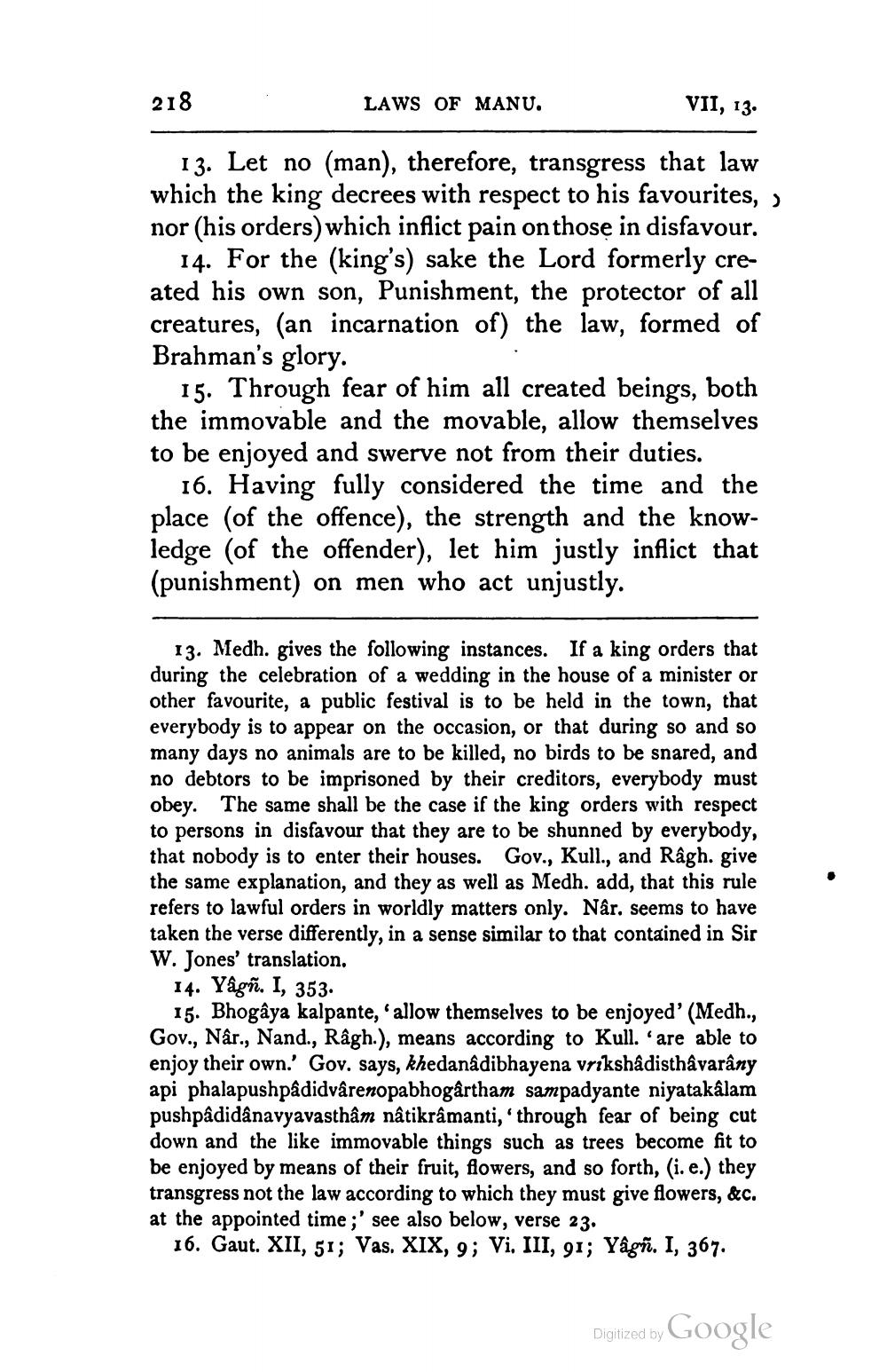________________
218
LAWS OF MANU.
VII, 13.
13. Let no (man), therefore, transgress that law which the king decrees with respect to his favourites, , nor (his orders) which inflict pain on those in disfavour.
14. For the (king's) sake the Lord formerly created his own son, Punishment, the protector of all creatures, (an incarnation of) the law, formed of Brahman's glory.
15. Through fear of him all created beings, both the immovable and the movable, allow themselves to be enjoyed and swerve not from their duties.
16. Having fully considered the time and the place (of the offence), the strength and the knowledge (of the offender), let him justly inflict that (punishment) on men who act unjustly.
13. Medh. gives the following instances. If a king orders that during the celebration of a wedding in the house of a minister or other favourite, a public festival is to be held in the town, that everybody is to appear on the occasion, or that during so and so many days no animals are to be killed, no birds to be snared, and no debtors to be imprisoned by their creditors, everybody must obey. The same shall be the case if the king orders with respect to persons in disfavour that they are to be shunned by everybody, that nobody is to enter their houses. Gov., Kull., and Râgh. give the same explanation, and they as well as Medh. add, that this rule refers to lawful orders in worldly matters only. Når. seems to have taken the verse differently, in a sense similar to that contained in Sir W. Jones' translation.
14. Yâgñ. I, 353.
15. Bhogâya kalpante, allow themselves to be enjoyed' (Medh., Gov., Nár., Nand., Râgh.), means according to Kull. are able to enjoy their own.' Gov. says, khedanâdibhayena vrikshâdisthavarâny api phalapushpâdidvârenopabhogârtham sampadyante niyatakâlam pushpâdidânavyavasthâm nâtikrâmanti,' through fear of being cut down and the like immovable things such as trees become fit to be enjoyed by means of their fruit, flowers, and so forth, (i. e.) they transgress not the law according to which they must give flowers, &c. at the appointed time;' see also below, verse 23.
16. Gaut. XII, 51; Vas. XIX, 9; Vi. III, 91; Yâgñ. I, 367.
Digitized by Google




